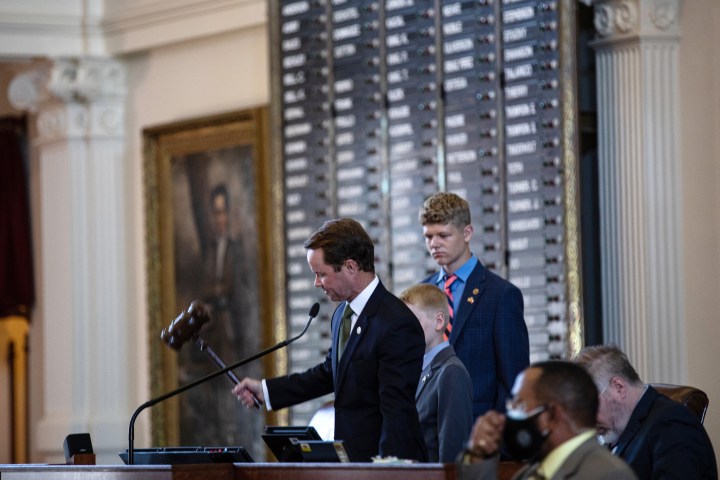
Banks are weighing environmental, social issues when investing. Some states punish them for it.
Banks are weighing environmental, social issues when investing. Some states punish them for it.

Many big banks and fund managers have started taking environmental, social, and governance issues into consideration alongside profitability when they make investment decisions.
But then the Trump administration prohibited retirement funds from considering so-called ESG factors. The Biden administration reversed that order, and recently the issue has been getting attention in state legislatures across the country.
Let’s start with the ABCs of ESG — what exactly is it? According to Megan Mullin, a public policy professor at UCLA, “ESG investing incorporates environmental, social and governance risk into investment decision making.”
She said the idea is to reduce the financial risk from a changing environment, social disruption and social inequality. The governance part is how a company is run — things like CEO pay and how diverse the board of directors is.
“Board structure, the relationship – the voice of shareholders in company decision making,” Mullin explained.
ESG eventually became an accepted approach to investing on Wall Street. But opponents called it “woke investing.”
Texas last year passed legislation prohibiting local governments from using 10 big banks that have ESG policies.
Jason Isaac, a former state legislator now with the conservative Texas Public Policy Foundation, said ESG discourages investments in the oil and gas industry – the state’s lifeblood. He refers to these banks as “the enemy,” and said the state shouldn’t be giving them any money.
“It’s not a good idea to weaponize your enemies to work against you,” Isaac said. Or, put another way, “(financial institutions) If you’re going to boycott Texas, then Texas is going to boycott you.”
Isaac acknowledged that the financial institutions Texas banned, including BlackRock, aren’t exactly boycotting fossil fuels. But activists like Isaac consider this a war. He’s working with the Heritage Foundation and other national groups that distribute model ESG ban legislation to state lawmakers.
According to the law firm Ropes and Gray more than 20 states are now considering restricting ESG in investment decisions.
But others are backing away. North Dakota’s Republican Treasurer Thomas Beadle warned the state legislature that restrictions could scare away investors.
“We don’t want to just cut ourselves off from the investment markets elsewhere in the world,” Beadle said.
Beadle tells lawmakers – it’s OK if a bank has an ESG fund for its other clients. North Dakota just won’t invest in it. He doesn’t want his hands tied by the legislature.
And there is some evidence that ESG prohibitions and bans can hurt a state’s bottom line. Daniel Garrett, who teaches finance at the Wharton School of Business, said after Texas banned those 10 banks there was less competition in the state’s bond market — driving up the cost of borrowing.
“This comes out to between $300 and $500 million of additional interest expenses on these bonds,” Garrett said.
He said that even with that extra expense he still expects more states to pass restrictions on ESG investing.
There’s a lot happening in the world. Through it all, Marketplace is here for you.
You rely on Marketplace to break down the world’s events and tell you how it affects you in a fact-based, approachable way. We rely on your financial support to keep making that possible.
Your donation today powers the independent journalism that you rely on. For just $5/month, you can help sustain Marketplace so we can keep reporting on the things that matter to you.

















